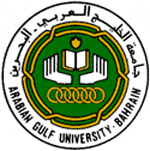College of Medicine & Medical Sciences, Arabian Gulf University, Bahrain
Arab World Awards
Hamdan Award for the Best Medical College/Institute or Centre in the Arab World
2005-2006
The College of Medicine and Medical Sciences, the first College established in May 1982 in the Arabian Gulf University, elected to develop and to implement an undergraduate curriculum with characteristics that would set it apart, being student centered, community oriented, problem-based learning and encouraging integrative learning.
A conference entitled "Arabian Gulf University- Future Plan" was held in Bahrain in the year .1982. Over fifty prominent scientists, intellectuals and educators from Gulf Arab States, as well as contributors from further afield in the Arab and Western worlds, discussed the establishment of the Arabian Gulf University . This meeting represented a culmination of ideas that had been first entertained ten years previously. Over the course of three days, a strategic plan for the establishment and actualization of the University was drawn and a unique profile for the university was developed. The project was a joint venture of the Gulf Arab States, to promote higher education and research, with the goal of serving development needs of the region. Its programmes and initiatives were to reflect the unique economic, social and cultural attributes of the gulf communities and their environs; its programmes and initiatives were to complement those available in other Universities in the Gulf.
The first group of students was admitted in 1983, and for two decades, the College of Medicine and Medical Sciences has been the leading institution in the Gulf region to implement such a curriculum, comprehensively and consistently. It has not stood still, and other programmes have been developed in response to changing and more focused societal needs.
In many ways the educational services provided by the University are outstanding in terms of quality of teaching and learning enjoyed by its students, the quality of its resources, the opportunity provided to them, the use of their evaluations not only to inform practice but also to publish in peer reviewed journals, the commitment and evident enthusiasm of staff, the international links, the relevance of the curriculum and research to the Gulf region-yet with global lessons to share. Students, through a problem based approach and use of field books, are encouraged to reflect on their learning to become good doctors, health workers and scientists, as well as team workers .
The hallmark of the curriculum is its problem based nature with small group learning format and early exposure to clinical sciences beginning from year two. Students hail from all countries of the Arabian Gulf Region. The process of selection allows for varying student abilities to be catered for. The Undergraduate curriculum is evaluated regularly and in many ways. The most important of these is the feed back which is sought regularly from students during their problem based learning tutorial and community field experience. Apart from the Undergraduate program, the University runs three Master degree programmes in health education, health policy and population studies and laboratory medicine.
Research undertaken by Faculty and students in the college is, to a large extent, focused on regional needs and targeted on areas of concern to the countries of the region. The research conducted by the Faculty can be broadly classified into three categories, biomedical, educational and clinical/community based research. The college has made its mark at national, regional and international levels by establishing Al-Jawahara Centre for Molecular Medicine, Genetics and Inherited disorders as well as the Gulf Reference Centre for Evidence-Based Healthcare.
The Primary mission of the College of Medicine and Medical Sciences of the AGU was to produce medical graduates, who would be able to recognize and respond effectively to the health needs and demands of the people of the Arabian Gulf Region.
The undergraduate programme is of six years duration and is divided into three phases
I Year Pre-medical Phase
II Year 2 Unit/System Phase
Year 3 Unit/System Phase
Year 4 Unit/System III
III Year 5 Clerkship Phase
Year 6 Clerkship Phase
At the end of this training period the student will graduate with an MD.
Between 1989 and 2005 the college has graduated 893 physicians mainly Arabian Gulf Nationals and reviewing the career status of the graduates; it indicates that about 50% has pursued their specialization and sub-specialization in various fields of medicine in USA, Canada and Europe. The remaining 50% joined training programme regionally supervised by the Arab Board for Medical specializations.
The undergraduate and postgraduate qualifications of the University and College of Medicine are recognized by all Ministries of Health in the Arab world and by the General Medical Council in UK, Irish Medical Board, Canadian Board, The Royal College of UK and United States Medical Licensing Exam (USMLE). Several other measures give evidence of the quality of this innovative undergraduate programme such as the accreditation from the World Federa tion for Medical Education, the Network and the college has already established links with prestigious institutions such the University of Illinois in Chicago, the University of Southern California in Los Angeles, the University of Southern Illinois, Karolinska Institute in Sweden and many other international institutes.
Full time faculty have published around 287 research papers and contributed 33 chapters to books, yearbooks and reviews.
The College of Medicine has achieved excellence in medical education that compares favor ably with the best (and older) medical schools in the world.
For these considerations and achievements, College of Medicine & Medical Sciences of Ara bian Gulf University, Bahrain deserves the Hamdan Award for Medical colleges/ Institutions or Centres in the Arab World for 2005 - 2006.

